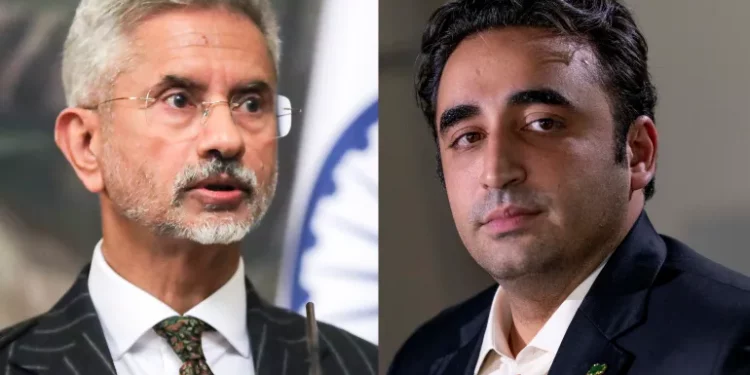The unseemly spat between External Affairs Minister S Jaishankar and his Pakistani counterpart Bilawal Bhutto Zardari during a United Nations Security Council (UNSC) session has done no good to the cause for which the two attended the meeting in the US. On the contrary, it has only shifted the focus of the UNSC special briefing on ‘global counterterrorism approach’ that was convened by India. The remark of Bilawal describing Prime Minister Narendra Modi as the “butcher of Gujarat” who “lives”, while “Osama bin Laden is dead”, is being claimed by India as violating all canons of decent diplomacy. India’s MEA spokesman has called it the ‘new low’. But, the sad part of the development is that Jaishankar might only have invited this comment.
The agenda of the meeting is well timed as the global war on terrorism and the sanctions regimes launched since the Twin Tower mayhem of 9/11 are in shambles. Jaishankar rightly listed four obstacles that impeded the cooperation in counterterrorism operations. These are state support for financing terror, opaque multilateral mechanisms, double standards and politicisation of countering terrorism according to where terror groups belong and the ‘next frontier’ which is the use of emerging technologies such as drones and virtual currency by terrorists. The US dealt a severe blow to the sanctions regime by giving legitimacy to the Taliban through holding talks with them in the haste to exit Afghanistan in 2021. This not only helped the Taliban seize power in Afghanistan, but also let their handlers in Pakistan off the hook. As Jaishankar pointed out without specifically taking China’s name that a P-5 country continues to block the designations of Pakistan-based terrorists, including five named this year, from the Lashkar-e-Taiba (LeT) and the Jaish-e-Mohammed (JeM) to be declared as terrorists. India got the opportunity to highlight its concerns over terrorism at the fag end of its two-year UNSC tenure. But, Jaishankar’s needless reference to the hiding of Osama bin Laden in Pakistan till he was hunted down and annihilated by a special squad of the US helped Pakistan virtually dilute India’s efforts to get international support to the fight against terrorists and non-state actors from across the border. He seems to have played into Pakistan’s hand with his comments on Pakistan being the epicentre of terrorism.
Bilawal only lapped up the opportunity to launch his counter-offensive with glee. Responding to Jaishankar’s jab on Pakistan for helping Laden go into hiding on its soil, he said: “Jaishankar should remember that Osama bin Laden is dead, [but] the butcher of Gujarat lives and he is the prime minister of India.”
He would not have been able to distract the world’s attention from the main issue had Jaishankar not restated a fact that is known to the world. Bilawal did not even stop at that, but went on to condemn the attacks on Moslems in India and derogatory remarks on them during the current BJP rule at the Centre. He also likened the RSS to Hitler’s notorious organ of torture and killings, the SS.
It is unfortunate that the debate on terrorism at an international forum like the UNSC was thus reduced to immature Pakistan-bashing primarily because Jaishankar came across as incapable to handle international issues with political maturity. The overemphasis of India’s foreign policy under the current dispensation on Pakistan neglecting its other neighbours has already helped China encircle the country.
The External Affairs Minister seems to have not yet come out of the fixation on Pakistan. Even while bringing global attention back to counterterrorism challenges, India is focusing heavily on Pakistan as the main sponsor of terrorism in South Asia. This could be a good formula for the BJP to win domestic elections. But, when it is being used at international forums, India’s adversaries outside the country cleverly and predictably use it to slam India back. They obviously are not cowed down the way the BJP manages to scare its opponents within the country. These diplomatic failures may not be understood by the uninitiated but the damage caused is huge and long lasting for the country.






































